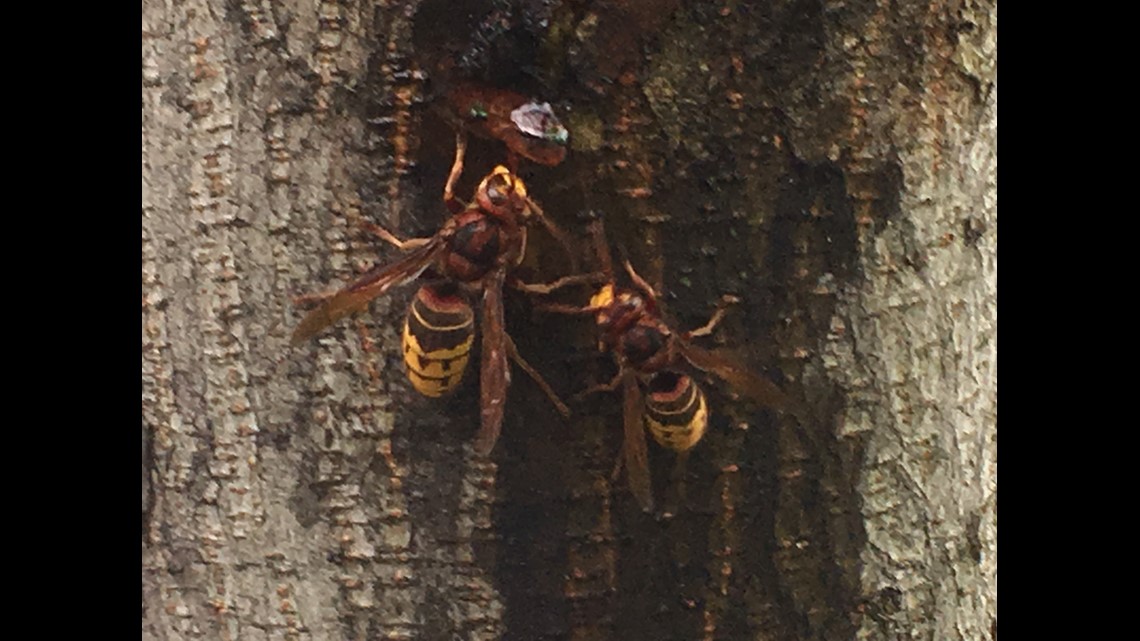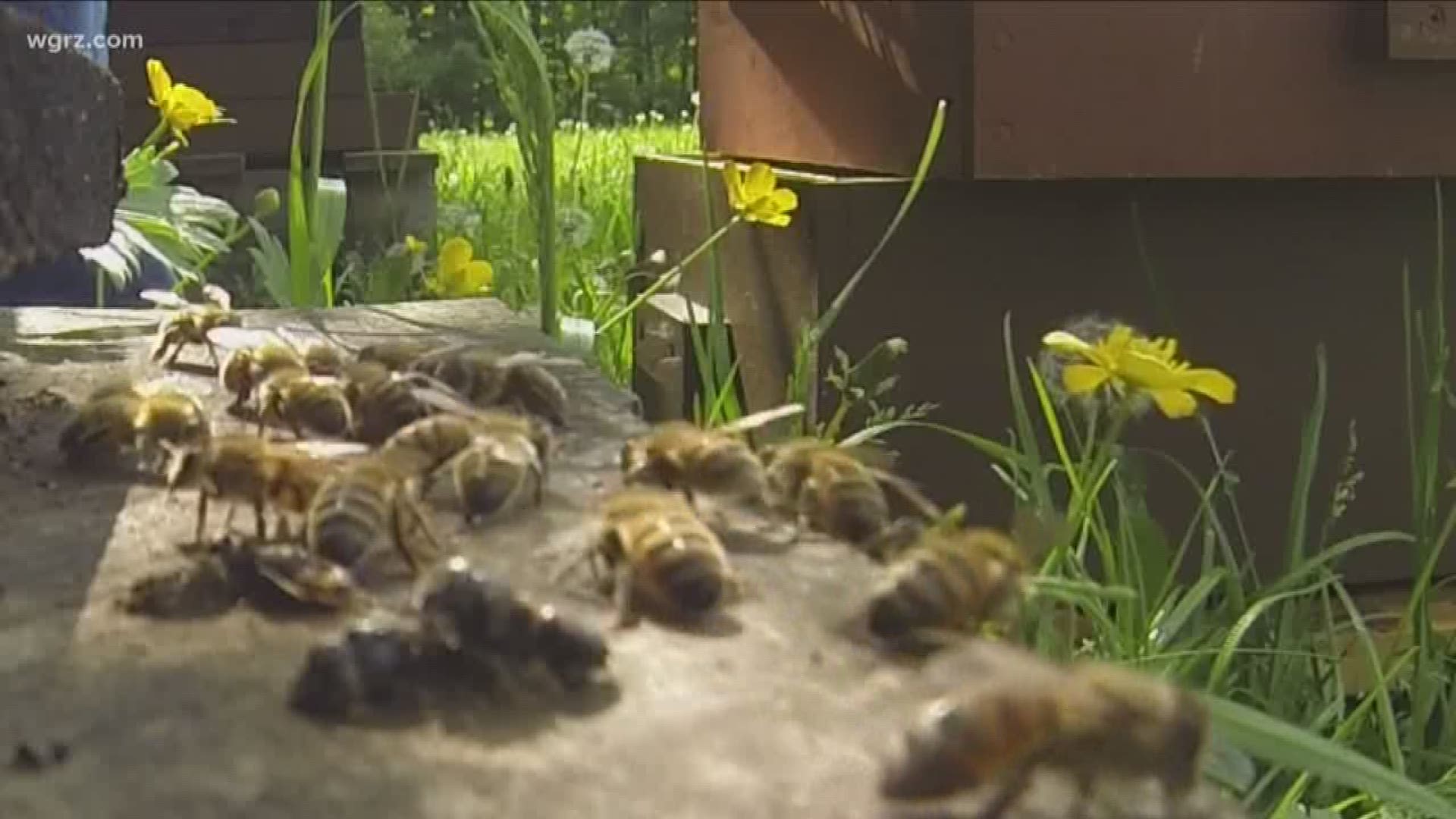BUFFALO, NY - Each year as Spring bursts upon us, much is said about the relationship between Honeybees and Dandelions.
The prevailing thought is to help the bees by preserving the plants, which are said to be an important source of nutrition for the bees. While this is mostly true, it ignores some other important facts.
Neither Dandelions nor Honeybees are native to Western New York. Honeybees colonized North America along with the European settlers. Though they are important to agriculture and food production, they can have negative effects on native pollinators.
Jay Burney is an environmental activist and Founder of the Pollinator Conservation Association. "The farming system that we rely on both changes landscapes, it takes away natural land and turns it into agricultural lands, and agricultural practices, using lots of chemicals and pesticides are also harmful to native pollinators and other native wildlife," he says.


The renewal of the season reminds us of the interconnectedness of life on the planet. Native plants and animals have developed alongside each other for millennia, and need each other to survive. Non native and Invasive species have the potential to destroy these important relationships. Burney describes the delicate balance. "A Chickadee with one nest with two babies requires up to ten thousand caterpillars over a three week process just to feed that small nest of babies. Now a native tree like an Oak supports a lot of native pollinators that create caterpillars, whether they are moths or butterflies. A non-native tree, like a Callery Pear, supports maybe two. So if you're planting non-native species, you often end up with things that don't support things like bird populations. "
Native insect populations are critical, especially pollinators, but are perceived as an unwanted visitor - a pest species.
"You can learn to live with them, and if you indiscriminately decide to kill what you might consider to be a pest, you might have unintended consequences, which involves killing all the other pollinators," says Burney.
Supporting native populations of plants and animals leads to strengthened biodiversity, critical to life on Earth - and that includes all the creatures we consider threats or nuisances. All life has a purpose, and the responsibility to maintain that balance is shared by us all.
"You don't have to broad spray, getting rid of all the insects, that's just a dangerous thing to do, it's helping contribute to the collapse of Earth's ecosystems," says Burney. "We can do better, it's easy. And if you know more about why we're doing better, why we need to do better, it helps you make informed choices."
To learn more about pollinators and the work being done by the Pollinator Conservation Society, you can visit their website.

